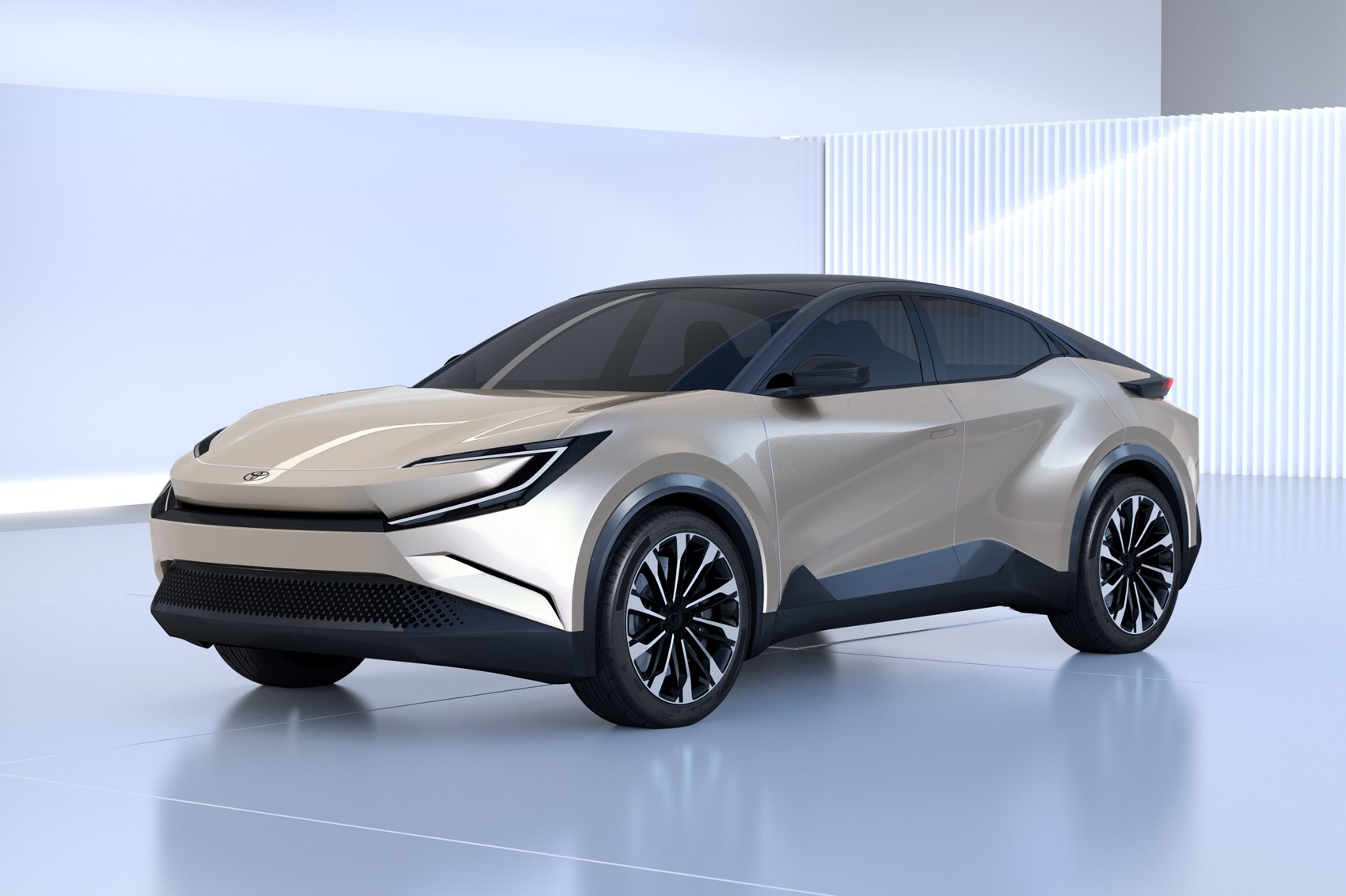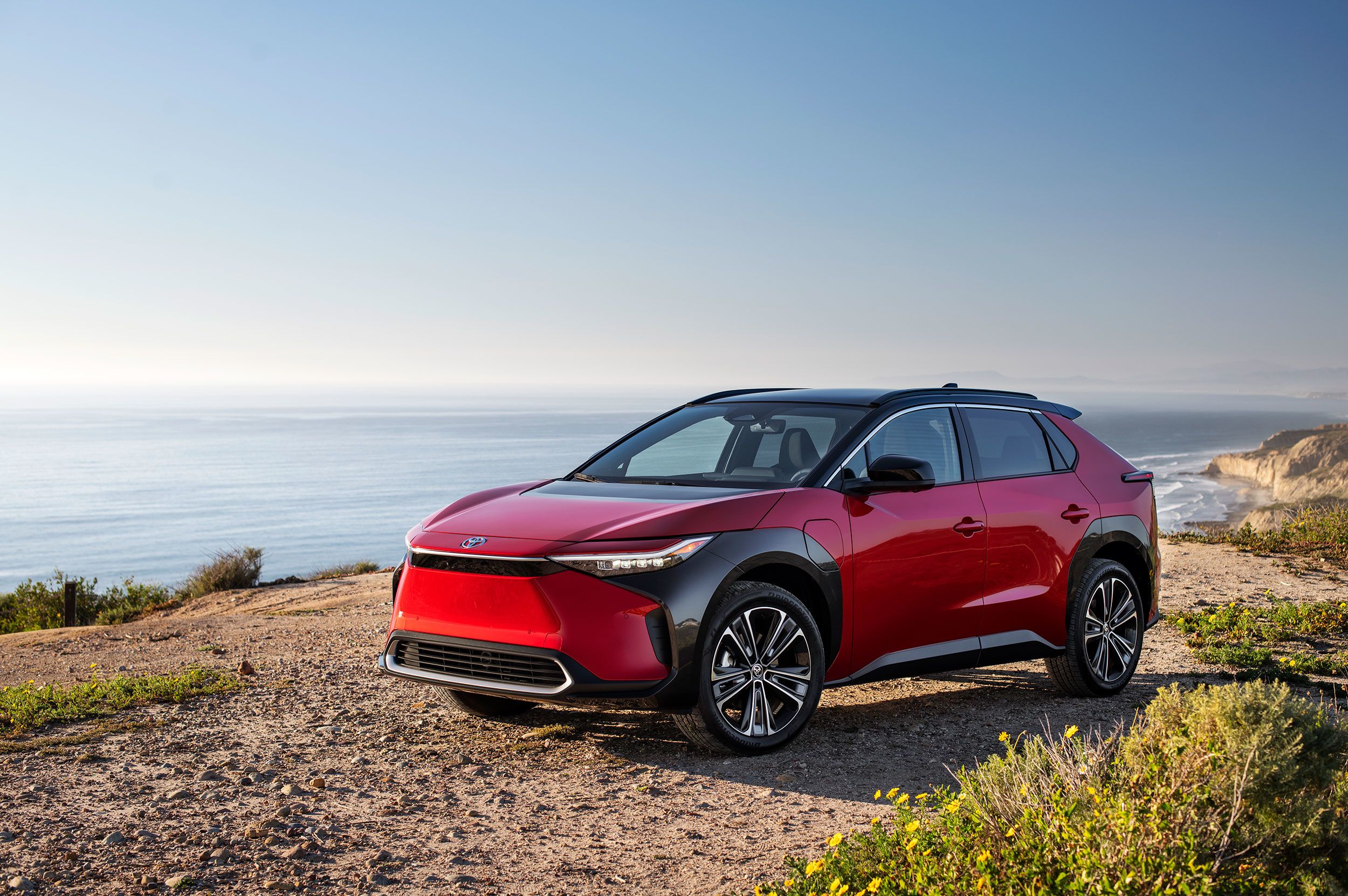Toyota’s Electric Vehicle Journey: From Hybrids to the bZ4X and Beyond
Toyota, a name synonymous with automotive reliability and innovation, has long been a leader in electrified vehicles. However, when it comes to fully electric cars (BEVs), their approach has been more measured and deliberate compared to some of their competitors. This article delves into Toyota’s electric vehicle strategy, examining their current offerings, past developments, and future plans.
Toyota’s journey into electrified vehicles began long before the current surge in BEV popularity. The Prius, launched in 1997, revolutionized the automotive industry by demonstrating the viability and practicality of hybrid technology. This pioneering spirit established Toyota as a leader in fuel efficiency and emissions reduction.
The Prius’s Pioneering Role

The Prius’s success stemmed from its innovative hybrid powertrain, which combined a gasoline engine with an electric motor. This system allowed for efficient energy recovery during braking and optimized fuel consumption, significantly reducing environmental impact. Toyota’s commitment to hybrid technology extended beyond the Prius, leading to the development of a broad range of hybrid models across their lineup.
Fuel Cell Technology: Mirai’s Hydrogen Vision
Beyond hybrids, Toyota has also invested heavily in fuel cell technology, exemplified by the Mirai. This hydrogen-powered vehicle generates electricity on board, emitting only water vapor. While the infrastructure for hydrogen refueling remains a challenge, Toyota continues to explore its potential as a long-term solution for sustainable transportation.
Despite their long-standing expertise in electrification, Toyota’s entry into the pure battery electric vehicle market has been relatively recent. This cautious approach reflects their emphasis on reliability, infrastructure readiness, and a comprehensive understanding of the evolving EV landscape.
The bZ4X: Toyota’s First Mass-Market BEV

Toyota’s first mass-market battery electric vehicle, the bZ4X, represents a significant step in their electrification strategy. This SUV, developed in collaboration with Subaru, showcases Toyota’s commitment to delivering practical and reliable electric vehicles. It features a spacious interior, a long driving range, and advanced safety features.
bZ4X’s Technology and Features
The bZ4X is built on Toyota’s e-TNGA platform, a dedicated BEV architecture that allows for flexibility in battery size and motor configuration. It offers both front-wheel-drive and all-wheel-drive options, catering to diverse driving needs. The vehicle is equipped with a high-capacity lithium-ion battery, providing a competitive range.
Challenges and Considerations with the bZ4X Launch
The launch of the bZ4X encountered initial challenges, including a recall related to wheel bolt issues. This experience highlighted Toyota’s commitment to addressing quality concerns and ensuring customer safety. However, this also delayed the initial rollout, and impacted public perception.

Toyota’s commitment to BEVs extends beyond the bZ4X. The company plans to introduce a range of bZ-branded electric vehicles in the coming years, catering to various market segments and customer preferences.
Future bZ Models: Diversifying the Electric Portfolio
Toyota has previewed several concept vehicles, hinting at their future electric lineup. These concepts include a compact SUV, a mid-size sedan, and a large SUV, demonstrating their intention to offer a comprehensive range of BEVs.
Solid-State Batteries: A Potential Game-Changer
Toyota is actively developing solid-state batteries, a technology that promises to significantly improve battery performance, safety, and charging times. This advancement could potentially revolutionize the EV industry and solidify Toyota’s position as a leader in battery technology.
Infrastructure and Charging: A Holistic Approach
Toyota recognizes the importance of a robust charging infrastructure for the widespread adoption of BEVs. The company is actively involved in initiatives to expand charging networks and improve charging efficiency. This includes partnerships with charging providers and investments in fast-charging technology.
Toyota’s approach to electrification is characterized by a “multi-pathway” strategy, which acknowledges the diversity of energy sources and transportation needs. This strategy involves investing in a range of technologies, including hybrids, plug-in hybrids, fuel cell vehicles, and battery electric vehicles.
The Role of Hybrids and Plug-in Hybrids
Toyota believes that hybrids and plug-in hybrids will continue to play a crucial role in reducing emissions in the near term. These technologies offer a practical and accessible solution for customers who are not yet ready to fully transition to BEVs.
Fuel Cell Vehicles: A Long-Term Vision
Toyota remains committed to fuel cell technology, viewing it as a viable long-term solution for heavy-duty vehicles and long-distance transportation. The company continues to invest in research and development to improve fuel cell efficiency and reduce costs.
Sustainable Manufacturing and Lifecycle Management
Toyota is also focused on sustainable manufacturing and lifecycle management of its vehicles. This includes reducing the environmental impact of its production processes and developing strategies for battery recycling and reuse.
Toyota’s electric vehicle strategy reflects a balanced perspective, considering both the environmental benefits and the practical challenges of BEV adoption. The company’s focus on reliability, quality, and a diverse range of technologies positions them to play a significant role in the evolving automotive landscape.
Toyota’s Commitment to Sustainable Mobility
Toyota’s commitment to sustainable mobility extends beyond electric vehicles. The company is actively involved in initiatives to reduce its overall environmental footprint, including improving energy efficiency in its operations and promoting sustainable transportation solutions.
Adapting to Market Dynamics and Consumer Preferences
Toyota’s success in the electric vehicle market will depend on its ability to adapt to changing market dynamics and consumer preferences. The company’s focus on customer feedback and continuous improvement will be crucial in navigating the evolving EV landscape.
The Long Game: Toyota’s Measured Approach to Electrification
While some may criticize Toyota’s relatively slow entry into the BEV market, their measured approach reflects a long-term vision. The company’s focus on reliability, infrastructure readiness, and a comprehensive understanding of the technology positions them to deliver sustainable and practical electric vehicles for the future.
In conclusion, Toyota does indeed have an electric car, the bZ4X, and is committed to expanding its BEV lineup. Their multi-pathway strategy, encompassing hybrids, plug-in hybrids, fuel cells, and battery electric vehicles, demonstrates a holistic approach to sustainable mobility. While their entry into the pure BEV market has been deliberate, Toyota’s focus on reliability, quality, and innovation positions them to be a significant player in the future of electric vehicles.



